Tackle real-world challenges in industry

Master of Industrial Research candidates undertake research into questions that have immediate, real-world impact. Based with an industry partner and with supervision from UNSW experts, you will work on a commercially significant research project in your chosen field. You will gain the skills in advanced research and professional practice required for an exciting career in industry or for further specialisation via an Industry PhD.
Our industry partners include some of the most innovative companies in Australia – from household names to early-stage startups.
- Entry requirements
- English requirements
- Program requirements
- Scholarship opportunities
The minimum requirement for admission to the Master of Industrial Research is:
- an appropriate UNSW Bachelor degree with a credit average or higher; or
- an equivalent qualification from a tertiary institution, as determined by the Faculty Higher Degree Committee (HDC).
All applicants must provide evidence that their English language ability meets the minimum requirements for admission: English language requirements.
The Master of Industrial Research program is 1.5 – 2 years full-time in duration (72 UOC) and requires preparation of a written thesis. The length of a Master of Industrial Research thesis normally should not exceed 40,000 words. Once completed, the thesis is examined by members of the Australian and international scientific academic community. Students will also be required to complete a minimum of three coursework subjects (18 UOC) encompassing a broad range of multidisciplinary courses.
All Master of Industrial Research candidates receive an annual industry-funded stipend valued at the minimum UNSW HDR scholarship amount of $35,000 (in 2023) for the duration of their studies.
Meet some of our postgraduate students:
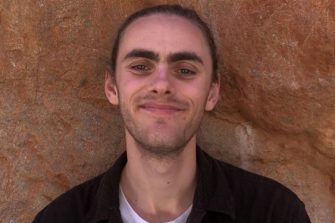
Benjamin Stewart
Industry Partner: Cochlear
I commenced the Master of Industrial Research program in February 2023, having completed a Bachelor in Commerce & Science at UNSW. Building on the multidisciplinary nature of my undergraduate studies, I felt that the MIR was the perfect opportunity to learn how scientific research is rolled out in industry.
In collaboration with Cochlear, and under the supervision of Cochlear’s Dr Kapila De Silva and Prof Martina Stenzel from UNSW, my research is focused on targeted drug delivery from a Cochlear Implant. Implantable drug delivery systems have widespread commercial and research applications due to their ability to provide targeted drug delivery to the affected site at low doses. Cochlear Implant surgery can cause inflammation to the inner ear and result in fibrous tissue growing around the electrode. Cochlear are currently developing an implant with a drug containing part designed to deliver drugs for an extended period to suppress the immune response. My project involves investigating the surface chemistry of the drug containing part to understand the factors influencing drug delivery from the polymer matrix. It is hoped that this will inform the development of new drug coating formulas to enable less variable drug delivery.
Though I am still in the early stages of my project, I have already gained valuable experience in analytical techniques including Raman spectroscopy, XRD and electron microscopy, as well as new knowledge of materials science. In my free time, I can generally be found bushwalking, reading or swimming at the beach.
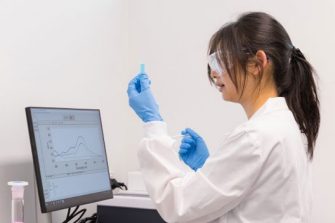
Julia Chov
Industry Partner: Memjet
After completing my bachelor’s in Engineering (Chemical) and Science (Biotechnology), I knew I wanted to work in industry. The Master of Industrial Research presented an opportunity to further pursue the research side of academia that I enjoyed whilst gaining deeper experience in how research is applied to innovation in industry to solve real-world industry challenges.
I completed my project in 2022 at Memjet understanding why the surfactants used in their inkjet ink are the most effective. Given the continually evolving constraints placed by regulatory bodies, I also explored and identified an alternative surfactant that can be used in future formulations. Throughout this experience, I have thoroughly enjoyed working with the supportive and knowledgeable ink team who have pushed me outside of my comfort zone.
Since completing the MIR, I’ve been working as a quality scientist and managing a small analytical laboratory as part of the ink team at Memjet. The technical knowledge and skills I gained through the MIR have significantly helped in my day-to-day responsibilities.
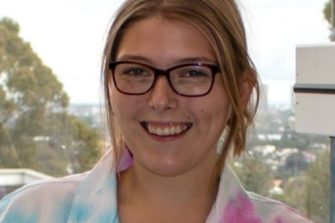
Elise Crowley
Industry Partner: Ultraceuticals
I joined the Master of Industrial Research Program in May 2023 after having worked two years as a product development chemist in the cosmetic industry. I had completed a Bachelor of Science majoring in Chemical and Biomolecular Science but was looking for opportunities to further develop my skills as a researcher. The Master of Industrial Research presented me with the perfect combination of academically rigorous research and real-world industrial problem-solving. It’s also proven to be a fantastic way to work under the close mentorship of experts in my field.
The cosmetic industry is constantly evolving to develop new and more efficient formulas for delivering actives into the skin system. My MIR project is hosted by industry leader Ultraceuticals and will investigate bio-mimetic Antioxidants, their use in combinations, and their synergistic effect in the skin. My UNSW supervisors are Assoc Prof Luke Hunter and Assoc Prof Wallace Bridge, while supervision at Ultraceuticals is by Dr Shiva Farabi. What I find most exciting about this work is the clear pathway for my research to eventually be delivered to market as a final product.
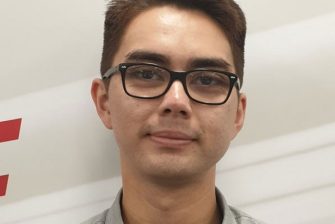
Toby Funston
Industry Partner: Memjet
I enrolled in the Master of Industrial Research to see what real industry-based R&D could be like. After my bachelor's, I knew I wanted to do more research, but not in an academic context. I wanted real-world applications and to see my research come to life in a tangible product.
The MIR program certainly delivered. I worked on a challenging project to develop a thin adhesive film used to assemble high-precision printheads. I was able to make real intellectual contributions to work that was critically important to my industry host, Memjet. The people I worked with were also fantastic - supportive and knowledgeable scientists and engineers both at Memjet and UNSW. On top of this I learnt a bunch of research skills which I wouldn't have learnt if I had carried out my research in a purely academic environment.
Since completing my MIR, I've been working as an analytical chemist at the National Measurement Institute. Having the Masters qualification and experience working at Memjet gave me the confidence and skills to get a job I love. I would highly recommend the MIR program to someone who is interested in applications-focussed research and wants a taste of what it can be like working in industry.
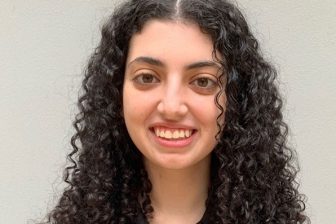
Sarah Zeigman
Industry Partner: Pharmaxis
I absolutely love performing chemistry research, and the Master of Industrial Research program gives me the opportunity to make a real difference with my work while also gaining the practical experience I need for a career in the field. I recently graduated with a Bachelor of Medicinal Chemistry (Honours) from UNSW and am now pursuing an MIR with a focus on medicinal organic chemistry. I have a deep interest in optimizing and working on novel chemical scaffolds for drug development, and hope to contribute to advancements in the field of pharmaceutical research.
My project is hosted by Pharmaxis and aims to identify and optimise novel inhibitors for treatment of inflammatory diseases. By synthesising promising scaffolds to biological testing, this work involves implementing synthetic organic chemistry skills to potentially make new treatments for life threatening or debilitating diseases. I am supervised by Assoc Prof Luke Hunter as well as Pharmaxis’ Dr Jonathan Foot. In my spare time, I can be found playing board games with friends or reading a good fantasy book.
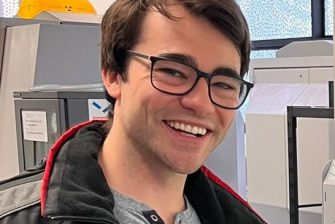
Hamish McDougall
Industry Partner: Cobalt Blue
On completing my undergraduate studies, I had the choice of pursuing either a PhD at my existing university or making the leap across to UNSW to commence a Master of Industrial Research. To tackle new challenges outside of my comfort zone and to grow as a person, I took on the latter. The MIR certainly did not disappoint.
My project was based on a novel ore mining process developed by our industry partner Cobalt Blue, who desired a method to improve their pyrometallurgical treatment strategy. Every day was a new and exciting challenge. Solving every question spawned five more, and each new question broke into new territories of science I hadn’t even thought about. Some experiments required learning how to interpret mineralogical data through X-ray diffraction and Scanning Electron Microscopy, while others required frying our samples with high energy neutrons at the OPAL reactor at ANSTO to witness in-situ chemical reactions. All the while, I had a team of incredible mentors led by Dr Andrew Tong and Assoc Prof Suzanne Neville guiding me in the right direction every step of the way.
